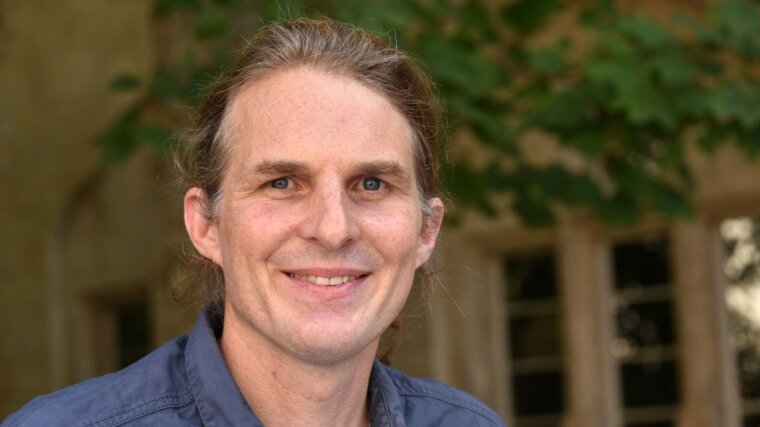
Published: | By: Sebastian Hollstein
Source article
Observational skills are one of the most important abilities that students of biology need to develop. After all, recognising similarities and differences in plants and animals as well as influences from the environment is elementary to understand processes in evolutionary biology. That is why Prof. Holger Schielzeth, ecologist at the Friedrich Schiller University Jena, puts observation at the centre of his exercise on evolutionary biology and is successful with it – and not only with the students. For his course, Schielzeth is receiving this year's teaching award from the University of Jena in the thematic focus "Promoting independent study and scientific work". The award comes with prize money of 2,500 euros, provided by Sparkassenstiftung Jena-Saale-Holzlandkreis, and will be presented during the "Dies Legendi" on 22 November 2022.
At the centre of Schielzeth's concept is a simulation programme that offers students the opportunity to discover basic evolutionary biology principles for themselves in an almost playful way at an early stage of their Bachelor's degree. The Jena ecologist uses the "NetLogo" modelling environment developed in the USA for this purpose, with which various simulation models can be developed and adapted.
Digital mice threatened by extinction
During the exercise "Evolutionary Biology", the participants can, for example, shape the development of a mouse population with different gene variants on a corresponding simplified interface. Using controls, the framework conditions of the model can be manipulated, predators can be switched on and off and different brightness levels of the background mark different environmental conditions that also have an influence on the development of the animals. In fast motion, the users then experience how certain parameters affect the development of the population. If there are a lot of black mice on a light background, for example, they are quickly threatened by extinction because birds of prey can recognise and hunt them better. Certain gene variants prevail in reproduction and displace other combinations.
"The students should play with the programme, try out different settings and then observe what happens," explains Holger Schielzeth. "In this way, they experience certain evolutionary biological principles such as selection or genetic drift. On the other hand, they learn to be attentive, to observe, to recognise deviations, to question what they observe and to form hypotheses – in other words, everything that constitutes scientific work in our discipline."
Discovering simulations, strengthening social skills
The budding biologists exchange their results in small groups and then put them up for discussion in a short presentation. This teamwork is also important to the Jena ecologist, because in this way different learning speeds equalise, social skills are promoted and the students gain experience in scientific discussion. Only after this process does the teacher intervene again, evaluates the presentations and explicitly addresses the topics of evolutionary biology. "Even for me, the observations made by the participants are exciting. Sometimes phenomena emerge in the simulation that I can't explain immediately either," says Schielzeth. "The discussions are therefore very lively and fruitful." The feedback on the exercise is equally positive, he says.
In addition, at a very early stage of their studies, the students work with scientific data and simulation models, which have now become a standard tool in many scientific disciplines. For this reason, Schielzeth's exercise is also to be included in the University of Jena's certification programme on data literacy (DaLiJe) in the future.